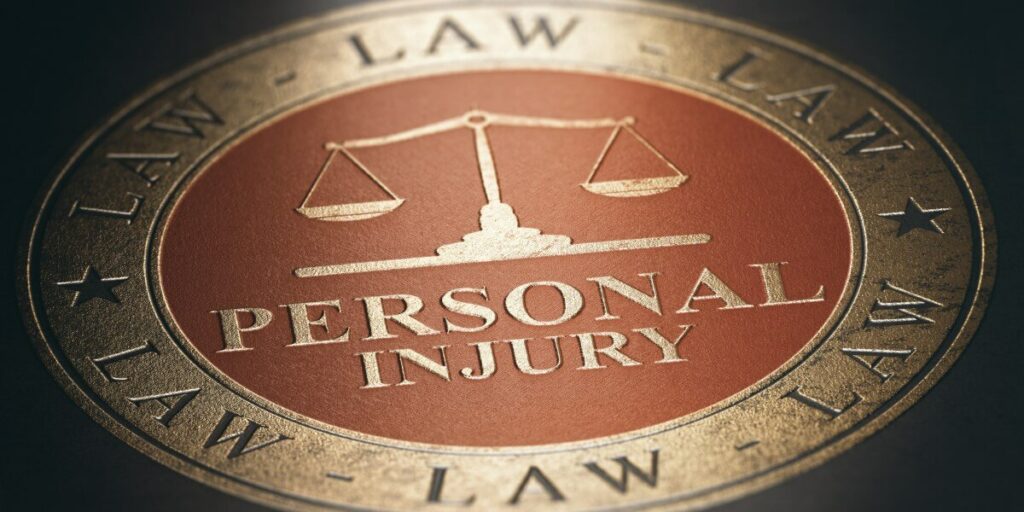What to Do If You’re Injured On the Job by a Third Party in Spokane Valley, Washington
February 1, 2024 – Matt Albrecht

Accidents happen, often when we least expect them. This fact is especially true in the workplace, where we spend a significant part of our day. You can get injured on the job at any time. The injury can range from something as minor as a small cut to something as severe as a broken bone. However, what happens when the injury is caused by a third party? This situation can create confusion, and you may wonder what your rights are and what steps you should take.
Your course of action may include filing a third-party claim, which is separate from a workers’ compensation claim, to seek damages for pain and suffering, emotional distress, and other losses not covered by workers’ compensation. Consulting with a Spokane workplace injury attorney experienced in third-party workplace injury claims can provide you with tailored advice. An attorney can also help build a strong case that addresses all aspects of your injury and losses, ensuring you pursue fair compensation under Washington state law.
You’ve got questions. We’ve got answers. Continue reading to learn more.
Taking Crucial Steps and Identifying the Third Party
Suffering an injury on the job when a third party is responsible can be a confusing and unsettling experience. While seeking medical attention remains your priority, understanding your legal options is vital for securing fair compensation for your injuries. Navigating the legal landscape starts with a few critical steps:
- Report the injury to your employer: This official documentation informs them of the situation and protects your rights.
- Seek medical attention: Prioritize your health and well-being – document all visits and medical records related to your injury.
- Gather evidence: Collect any relevant materials, such as accident reports, witness statements, or photos of the scene.
Now, it’s crucial to determine who might be responsible for your injury beyond your employer. This is where identifying the third party comes in. Ask yourself these key questions:
- Was the injury caused by someone other than your company? This could be a vendor, a subcontractor, an employee of some other company or vendor, or even a member of the public.
- Were you using equipment manufactured by another firm that may have been defective? Faulty equipment from a separate company could be grounds for a third-party claim.
- Did the injury occur on a property not owned by your employer? For instance, if you were injured on a client’s site due to their negligence, they could be liable.
By answering these questions and identifying the third party, you’ll gain a clearer understanding of your legal options and potential avenues for seeking compensation.
Examples of Third-Party Claims
- Defective Equipment in Factory: A factory worker loses fingers when operating a malfunctioning machine due to faulty parts supplied by a third-party manufacturer.
- Chemical Exposure in Laboratory: A lab technician suffers lung damage from inhaling toxic fumes due to inadequate ventilation systems installed by a third-party contractor.
- Electrocution on Construction Site: An electrician gets electrocuted when using faulty wiring supplied by a third-party electrical wholesaler.
- Truck Accident with Delivery Driver: A delivery driver is injured in a car accident caused by a reckless driver of another company.
- Slip and Fall in Retail Store: A retail worker slips and falls on a spilled liquid in a grocery store due to negligent cleaning practices by a third-party cleaning company.
- Office Worker Trips on Uneven Sidewalk: An office worker fractures their ankle after tripping on an uneven sidewalk outside their building, which the property owner failed to maintain properly.
These are just a few examples, and the possibilities for third-party claims in work-related injuries are vast. Always remember to consult with a qualified attorney to determine the specific details of your claim and what legal options might be available to you.
Proving Negligence
In Washington state, proving negligence against a third party in a work-related injury case hinges on establishing the following elements of negligence:
- Duty of Care: You must demonstrate that the third party owed you a legal duty to act with reasonable care under the circumstances. This typically involves demonstrating that the third party had a business relationship with your employer or was present on the worksite with permission. Of course, every product manufacturer owes a duty to those who buy and use their products, just like every motorist owes a duty to every other motorist and pedestrian.
- Breach of Duty: You must prove that the third party breached their duty of care by acting negligently. This could involve various scenarios, such as:
- Negligent actions: Reckless driving, operating faulty equipment, failing to follow safety protocols, using defective products.
- Negligent omissions: Failing to warn of potential hazards, neglecting proper maintenance, providing inadequate security.
- Causation: You need to establish a clear link between the third party’s breach of duty and your injury. This means demonstrating that the third party’s negligence was the proximate cause of your injuries, not some other intervening factor.
- Damages: You must prove that you suffered actual damages as a result of the injury. This can include medical expenses, lost wages, pain and suffering, emotional distress, and potential disability or disfigurement.
Evidence and Burden of Proof
The burden of proof falls on you (or your attorney) to establish the above elements of negligence by a preponderance of the evidence. This means that it is more likely than not that the third party was negligent and caused your injury.
You can gather various types of evidence to support your case, such as:
- Accident reports: Police reports, investigation reports by your employer or the third party, and medical records
- Witness testimony: Statements from colleagues, bystanders, or anyone who witnessed the incident
- Physical evidence: Photos of the accident scene, damaged equipment, or defective products
- Expert testimony: Testimony from medical professionals, engineers, or other experts who can analyze the cause of the accident and your injuries
Understanding Comparative Fault
In Washington State, comparative fault rules may apply to your case. This means that liability can be distributed among various parties based on their degree of fault. Key points include:
- Your own contribution to the accident will be evaluated
- A percentage of fault will be assigned to you and the third party
If found partially at fault, compensation you receive could be reduced in proportion to your degree of responsibility. For example, if you are 20% at fault and the third party is 80% at fault, your potential compensation may be reduced by your percentage of fault.
Filing a Claim
When injured on the job by a third party in Spokane Valley, Washington, it’s important to understand the differences between workers’ compensation and third-party claims, the specific claims process, and the potential compensation and damages you may be entitled to.
Workers’ Compensation vs. Third-Party Claims
Workers’ comp in Washington state is a system designed to provide benefits to employees who are injured on the job, regardless of fault. In Washington, these claims are filed with the Department of Labor & Industries (L&I). However, if you are injured due to the negligence of a third party—a person or entity other than your employer or a co-worker—you may also have the right to file a separate third-party claim against the responsible party. You will likely need an attorney to help with this kind of claim because it must also be filed with the worker’s compensation system and the repayment of any benefits paid must be negotiated. These complications make this kind of claim unlikely to be easily navigated without an attorney.
- Workers’ Compensation: Benefits typically cover medical expenses and a portion of lost wages.
- Third-Party Claim: May include compensation for full lost wages (past and future), pain and suffering, and other damages not covered by workers’ compensation.
It’s essential to act promptly as there are statutory deadlines for filing these claims. Be sure to carefully document your injuries and losses as this can significantly impact the outcome of your claim.
Work Injury? Third-Party Liability? Get Expert Guidance
Navigating the legal complexities of a work injury involving a third party can be overwhelming. You need trusted experts by your side. Our attorneys have authored legal reference guides frequently cited by Washington courts, demonstrating our deep understanding of personal injury law and third-party claims.
Our legal team will advocate for you and will not back down when insurance companies and other parties attempt to minimize fair compensation for your injuries. At Albrecht Law, we prioritize your well-being, guiding you through every step of the legal process while you focus on recovery.
Don’t settle for uncertainty. Contact a member of our Washington workers’ third party compensation attorney team today at (509) 495-1246, or fill out our online form for a FREE consultation. Serving clients throughout Eastern Washington, including Grant County, Adams County, and Spokane County, we are committed to providing the guidance, support, and representation you need during this challenging time. We offer consultations based on your schedule and can travel to your location–including a hospital room–if needed.
You’ve got questions. We’ve got answers.
Copyright © 2024. Albrecht Law PLLC. All rights reserved.
The information in this blog post (“post”) is provided for general informational purposes only and may not reflect the current law in your jurisdiction. No information in this post should be construed as legal advice from the individual author or the law firm, nor is it intended to be a substitute for legal counsel on any subject matter. No reader of this post should act or refrain from acting based on any information included in or accessible through this post without seeking the appropriate legal or other professional advice on the particular facts and circumstances at issue from a lawyer licensed in the recipient’s state, country, or other appropriate licensing jurisdiction.
Albrecht Law PLLC
5105 E 3rd Ave, Suite 101
Spokane Valley, WA 99212
(509) 495-1246
https://albrechtlawfirm.com/
Schedule A Free Consultation Today
No Fee Unless You Win
Call (509) 495-1246(509) 495-1246, or fill out the short form. Don’t hesitate; your questions are welcome.
5105 E 3rd Ave Ste 101 Spokane Valley, WA 99212
Monday 8:30 AM–5:30 PMRequired Fields*
Your Information Is Safe With Us
We respect your privacy. The information you provide will be used to answer your question or to schedule an appointment if requested.




